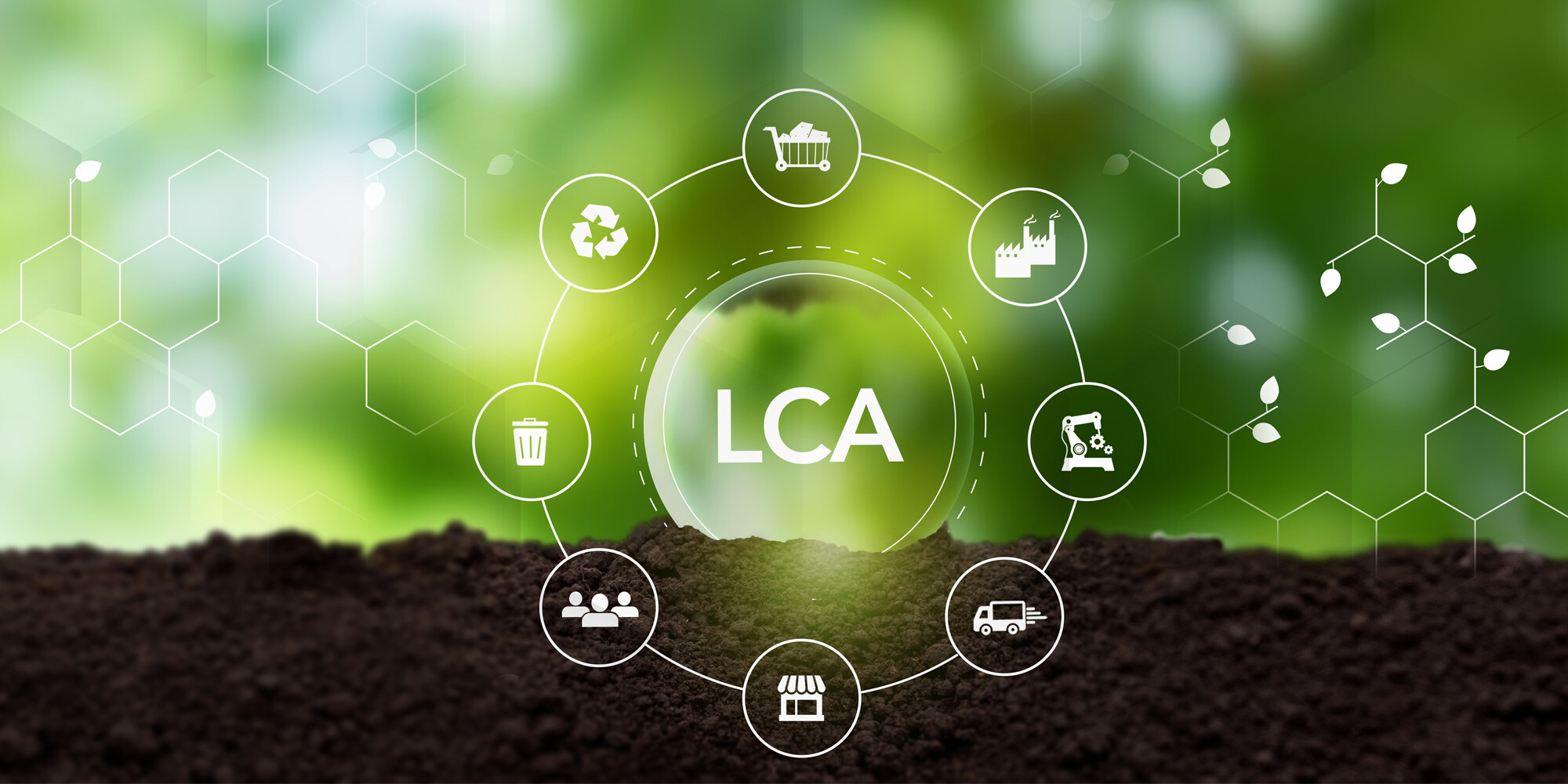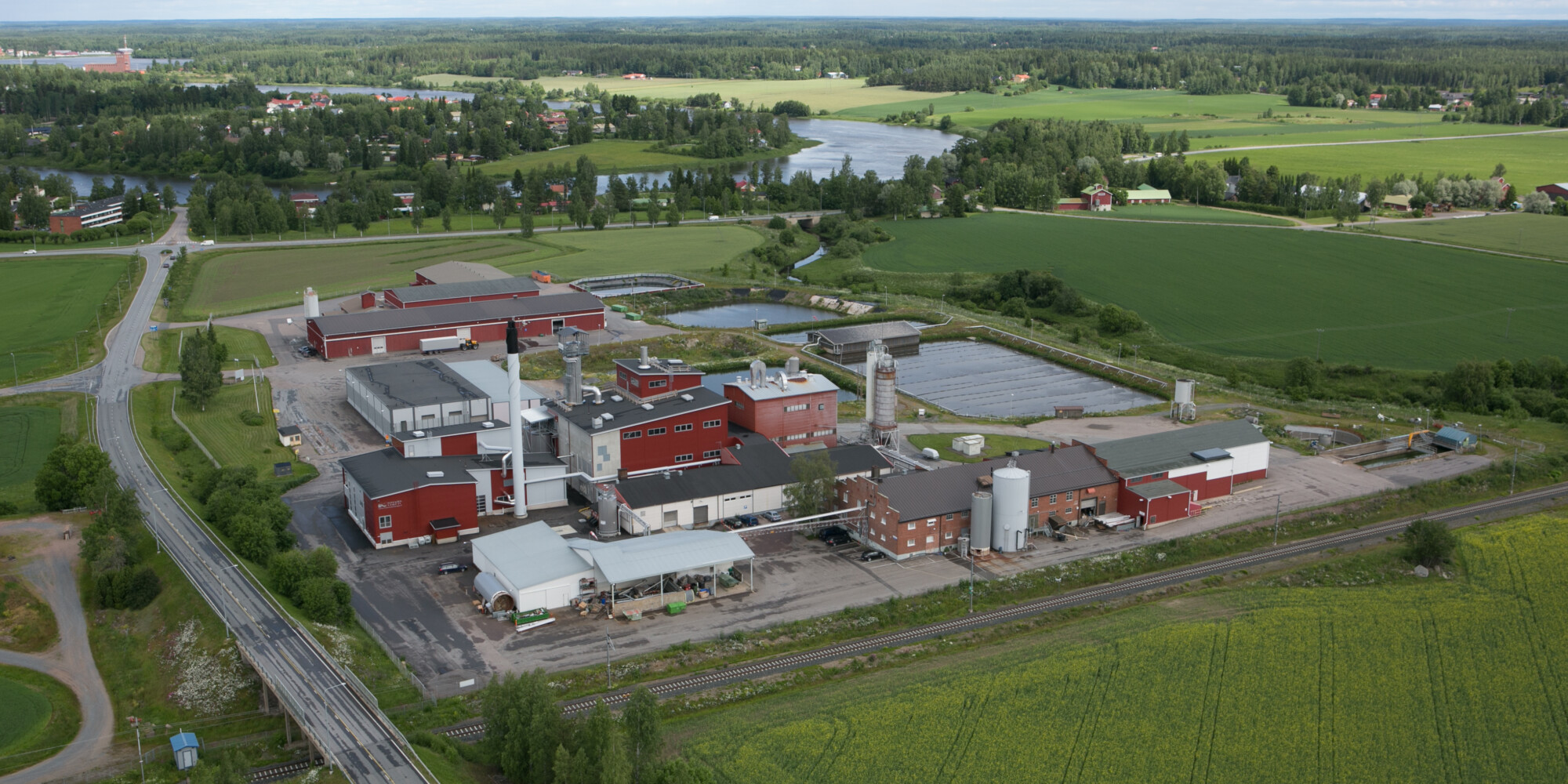
Product-specific climate impact assessments
We calculate product-specific Life Cycle Assessments (LCAs) for all our products. These calculations provide customers with the information they need to carry out their own product-specific carbon footprint calculations.
The calculation uses a Cradle-to-Gate assessment. This means that the calculation takes into account all stages of the product, from the sourcing of raw materials to the outer gate of the Chemigate factory. It’s also possible to calculate the average transport distances per customer.
The LCA calculation provides information on the sources and levels of emissions from our products, increasing our understanding of their climate and environmental impact. This data can be used in our product development, and to meet SBTi emission reduction targets. In addition, we’ll now be able to take the emissions of our products into account when meeting customer requirements.

Our commitment to the SBTi climate initiative
As part of the Berner Group’s commitment to the international Science Based Targets initiative (SBTi), Chemigate is committed to reducing climate impact.
SBTi has approved the group’s science-based emission reduction targets, which also guide Chemigate’s climate work.
By 2030, the Berner Group aims to reduce emissions by:
• Scope 1 and Scope 2: 42%
• Scope 3: 51.6% per million euros of added value (intensity target)
• Scope 3 FLAG (Forest, Land, and Agriculture): 30.3%
All targets are based on the 2021 baseline.
Chemigate promotes these approved climate targets through concrete actions such as energy investments and actively monitors emissions reductions as part of the group’s decarbonization roadmap.
Read more about the climate initiative on the SBTi website.

Future energy solutions
In 2025, a major energy investment will be completed at our Lapua plant. Thanks to a new heat recovery system, waste heat generated in the plant’s processes will be reused in production, reducing the consumption of liquefied petroleum gas. This will lower the plant’s carbon dioxide emissions by over 900 tonnes per year, which corresponds to a 20% reduction in direct emissions.
Our dry-modification plant in Lapua enables us to manufacture products with lower energy consumption and less wastewater compared to the wet-modification process.
A significant energy-savings project was implemented at our Mietoinen plant in 2020 – this heat pump solution reduced annual CO2 emissions at our Mietoinen factory by 48%, or 287 tonnes.
Our plants will work closely with other companies in the region to achieve new synergies. At the Kaipiainen plant, energy and wastewater solutions are being implemented in co-operation with other companies in the area, and plans are underway to modernise energy solutions and wastewater pre-treatment.
All our sites use CO2-free electricity, and we’re continuously developing new energy solutions as part of meeting our climate targets.

Reducing Scope 3 emissions through stakeholder engagement
Chemigate’s Scope 3 emissions, i.e., indirect emissions from our value chains, are the largest emissions source. This is why it’s also important to try to influence the emission sources of our suppliers and other partners.
Our starch suppliers are one of our most important stakeholders and, through them, the farmers who cultivate the cereals and potatoes for our products. We’ve launched a project with our largest supplier of potato starch that aims to increase yields through good farming practices, while maintaining field conditions. In turn, our barley starch supplier is investigating how to reduce carbon emissions from cultivation by improving field soil conditions. Their goal is to increase organic matter in the soil through various agricultural methods and to sequester carbon dioxide in the soil.
Our chemical suppliers are also committed to our ethical principles, and we also engage in dialogue to reduce climate and environmental impacts throughout the supply chain. We carry out sustainability audits for a portion of our suppliers according to the results of our supplier risk assessments. We are also concerned about carbon emissions from chemicals and are working to increase our use of bio-based raw materials.

